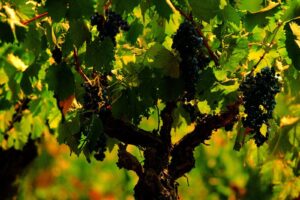
From the company's sustainability to that of the territory: the Vino Nobile di Montepulciano is the first Italian wine area to receive the sustainability certification mark according to the Equalitas standard. “An important result of our commitment to sustainability started ten years ago, a qualifying cultural path that in the short term will also have a commercial impact because consumers are increasingly motivated to buy products that meet certain standards”, said the president of the Consortium, Andrea Rossi, who, together with the president of Equalitas, Riccardo Ricci Curbastro, and the Mayor of Montepulciano, Michele Angiolini, announced in Federdoc, in Rome, the new “green” goal of the Denomination, which, in 2015, had aside other things given life to a revolutionary project of Carbon Foot Print measurement of its wines, becoming a role model on a national scale. In a territory where also the first “off-grid” winery in Italy is located, namely Salcheto by Michele Manelli, which has given a pioneering and decisive impulse to the sustainability path of the entire territory.
“The journey towards an increasingly sustainable Italy of wine continues quickly and, above all, now represents a fundamental ethical and economic value in the positioning of our brands on world markets”, said Ricci Curbastro, while delivering the certificate of the Equalitas brand with the three E’s (Environmental, Ethical, Economical) to of the president of the Consortium. On occasion, it was also presented the anti-waste initiative “#Portamiconte - #Montepulcianocontrolosprecoalimentare”, created by the Municipality of Montepulciano, in collaboration with the Consortium, which implies the delivery to the restaurants and bars so-called “doggy bags” and “wine bag” made of recycled cardboard and imprinted with the enchanting landscape of the Tuscan city, a pearl of the Renaissance.
“The goal, that we set to ourselves from the beginning of the path - added Rossi - we immediately considered it strategic because to achieve it we favored “a cultural change” in our companies with the aim of progressively changing the production and organizational profile with production methods and techniques that are more respectful to the environment and the landscape, but above all in the direction of guaranteeing a high standard of ethical, social and economic values, which will strengthen the cohesion between our companies and the territory, thus looking at the environmental, economic and ethical-social dimension where respect for collective values and rights plays a central role”.
An important step forward, in an area where the “wine heritage”, between production value, assets, and turnover, moves an estimated turnover of around one billion euros, according to the Consortium of the Vino Nobile itself.
Copyright © 2000/2025
Contatti: info@winenews.it
Seguici anche su Twitter: @WineNewsIt
Seguici anche su Facebook: @winenewsit
Questo articolo è tratto dall'archivio di WineNews - Tutti i diritti riservati - Copyright © 2000/2025